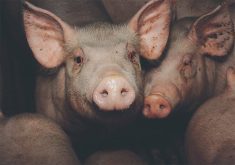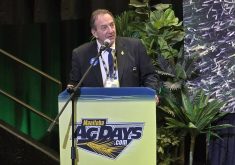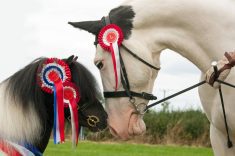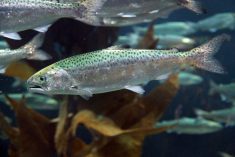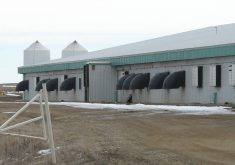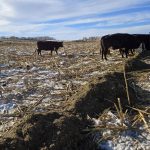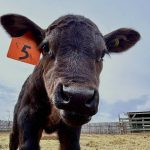Much is still not known about the porcine epidemic diarrhea virus infiltrating the pork industry. Researchers are investigating the virus’s survivability, but what they do know is that PED thrives in wet, cold environments and is spread by fecal-oral contact.
Manure applicators, like others working near or with the pigs, are taking extra precautions to stop the disease from spreading. They want to stay clear of the pigs altogether and are asking producers to install separate washing stations and build a separate driveway to the lagoons.
“I don’t want to be around the barn,” said Merv Kornelson, custom manure applicator for BMG Nutrient Management. “If I can stay in the back, there’s less chances (of cross-contamination).”
- More from the Manitoba Co-operator: Zoetis plans vaccine against PEDv
He shared his thoughts with a group of interested researchers, producers and other manure applicators during a biosecurity session at a field day at the University of Manitoba Research Station at Glenlea last week.
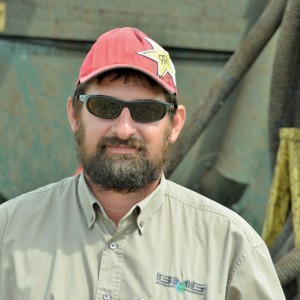
Not everyone can afford to build a separate driveway. So Kornelson must spend extra time washing his equipment.
John Carney, executive director of the Manitoba Livestock Manure Management Initiative (MLMMI), said they wanted to understand how PED has changed manure applicator practices. A recent survey found 34 per cent of applicators find cleaning equipment is “hard.” The survey questioned just under 50 commercial manure applicators during the North American Manure Expo.
Applicators reported changing farm communications, procedures and employee training, and 23 per cent reported buying PED-specific equipment. But of all the changes proposed, applicators reported cleaning was the most difficult aspect of the PED outbreak.
Kornelson estimates he spends an extra three to four hours washing his equipment. Prior to the outbreak, he spent six hours. Now he can spend up to 10 hours. He doesn’t wash his equipment between every stop, but does follow protocol and wash when going from a feeder barn to a sow barn. This extra time results in substantial lost revenue because the equipment is expensive.
Expensive downtime
As Kornelson spoke, a man in the audience raised his hand.
“According to my quick calculation, at about $1,200 an hour, that’s some pretty expensive downtime,” said Doug Redekop, another custom manure applicator. “Not to mention that God isn’t giving us any more time at the end of the season to offset that downtime.”
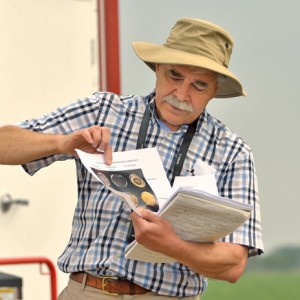
Establishing a line of separation is crucial. Reducing the number of people contacting the pigs lessens the opportunity for the virus to spread. Today most manure applicators bring their own water, because some producers store their water near the pig barn.
“This stuff doesn’t just magically jump from here to down the road and get into a pig,” said Carney.
MLMMI, in conjunction with the Manitoba Pork Council and Manitoba Agriculture, Food and Rural Development, is conducting a new study to help identify undiagnosed farms and then assess the virus’s survivability. They are asking pork producers to pick up a kit from their local GO office and then submit a manure sample.
In the meantime, Carney wants policy-makers to fund biosecurity for manure applicators so farmers can build separate driveways and washing stations.
Read Also
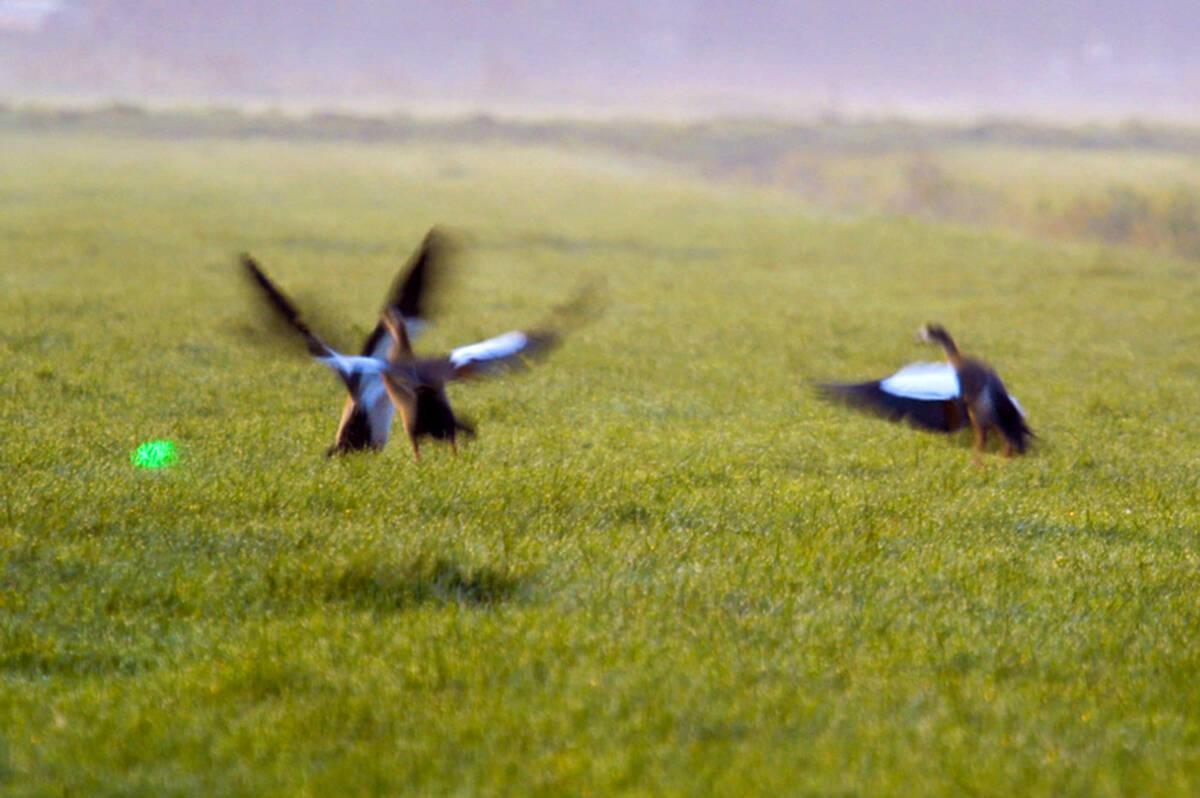
Canada’s import ban on Avix bird control system ruffles feathers
Canadian producers’ access to Bird Control Group’s Avix laser system remains blocked despite efficacy studies and certifications, as avian flu deaths rise.
“You can’t keep kicking the can down the road,” said Carney. “Pigs will keep pooping.”




